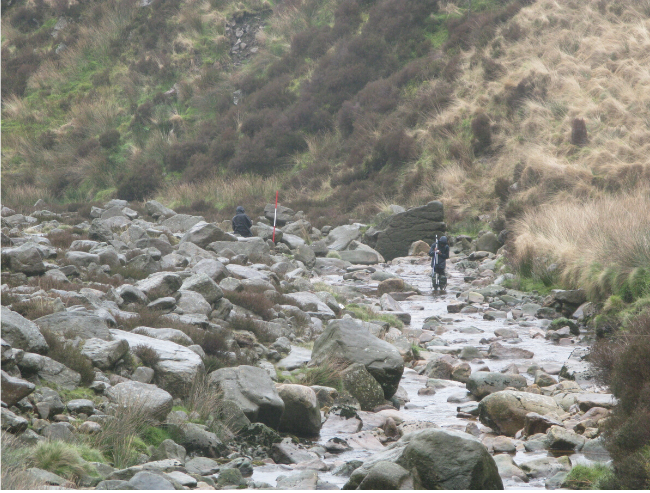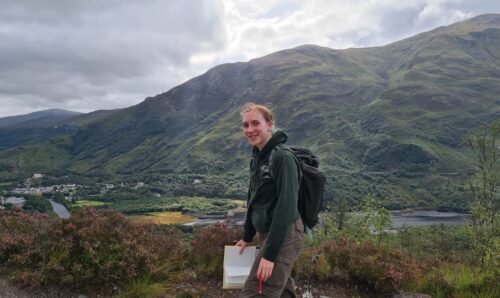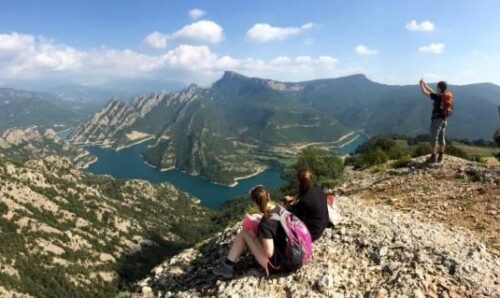Redesigning the 2nd year Environmental Science field class for the COVID-19 year
Student experience 28 May 2020
Dr Neil Mitchell provides us with insight on how fieldwork can be redesigned in light of lockdown by sharing his experience of delivering the module EART20042 Environmental Field Course.

This year sadly our students haven’t had the benefit of going into the field at Easter. Its a shame also because the weather has been good, unlike for the students in this photo! In designing a replacement activity for our students, we noticed that a lot of the activities we do during the week don’t actually require going into the field. We mainly aim to help the students learn how to design and carry out a field experiment, as part of their preparations for their year 3 projects. This involves considering a suitable question that can be asked of a part of the environment, what measurements can be made or samples collected to address the question and then the work in studying the data or samples to tackle the problem, before finally presenting the results orally and writing a report.
In much of our own research, we often come across interesting datasets that have been collected previously and we ask new questions of them, rather than setting out from scratch. So, it was actually relatively easy for us to design projects using data collected in previous years. We helped groups of 9 students work through problems in various research fields (atmospheric science, hydrology, ecology, geochemistry), with each group led by a member of academic staff. Daily meetings using Zoom have ensured that individual students get the chance to interact with staff and other group members as they worked through their data. Finally, we asked the students to prepare a podcast of their project presentations, which we have not tried before. This was a largely successful experience for many of our students and could be a further useful new skill for them arising from the week’s activities. In the project I led, we actually did a much better job of using the data from past years and developed our conceptual models to a higher level – in previous years, students only studied the data that they had collected. Although we can’t claim the experience has been as good as getting out into the Pennines as in normal years, the redesigned module has given the students the main skills they need to continue into Year 3, when they will need to design and carry out more substantial projects.
We asked one of the students who experienced the redesigned field course to comment on how this worked for them in practice. With many thanks to Renfei Wang 王任飞 for the overview below.
Due to the COVID-19, the EART20042 Environmental Field Course could not involve experiments in the field as originally planned, which makes me feel a little frustrated since this was to be my first field course. The alternative was for all meetings to be conducted online through Zoom. This is actually an ideal compromise. Zoom guarantees more nearly normal communication between me, the tutor and team members, and also abides by the British government’s social distancing regulations.
The content of this course is based on field experimental data of the past three years, where each person developed an aim and completed the report. The novelty was that I needed to use PowerPoint to give a presentation, after a week of online meetings. I had to talk over the presentation like a podcast. In this process, I could think about whether all my ideas supported my aim, or not. After that, I asked whether I should change the aim or think more deeply about my method.
In the process of completing the report, a large amount of data exercised my data processing ability, and enough online resources also provided me with many references. I believe this unique experience gave me lots of skills I will need in Year 3.
If you have any questions about studying at UoM, please have a look at the relevant page below:
adaptAtmospheric sciencedata analysisEcologyfield coursefieldworkgeochemistryhydrologyPenninespodcastprojectsredesigned modulereportZoom




Leave a Reply